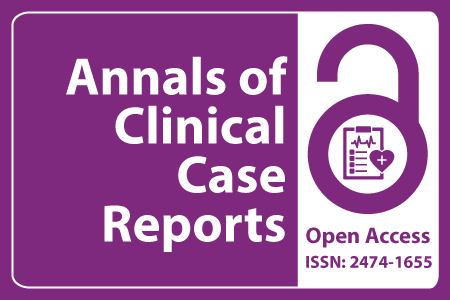
Journal Basic Info
- Impact Factor: 1.809**
- H-Index: 6
- ISSN: 2474-1655
- DOI: 10.25107/2474-1655
Major Scope
- Pediatrics
- Trauma
- Cancer Clinic
- Dentistry and Oral Biology
- Endoscopy
- Nursing
- Tuberculosis
- Allergy & Immunology
Abstract
Citation: Ann Clin Case Rep. 2023;8(1):2456.DOI: 10.25107/2474-1655.2456
Case of Hereditary Leiomyomatosis and Renal Cell Cancer without Cutaneous Leiomyomas Harboring a Heterozygous Germline Mutation in the Fumarate Hydratase Gene
Abe J1, Hashimoto K1*, Shindo T1, Nakayama S1, Ogasawara T1, Kyoda Y1, Kobayashi K1, Tanaka T1, Takada K2, Sakurai A3 and Masumori N1
1Department of Urology, Sapporo Medical University School of Medicine, Japan
2Department of Medical Oncology, Sapporo Medical University School of Medicine, Japan
3Departments of Medical Genetics and Genomics, Sapporo Medical University School of Medicine, Japan
*Correspondance to: Kohei Hashimoto
PDF Full Text Case Report | Open Access
Abstract:
A 30-year-old woman was referred to our hospital with a 1-month history of intermittent gross hematuria and low back pain. Dynamic contrast enhanced computed tomography can revealed a hypovascular tumor of 8 cm in diameter in the left kidney. She was diagnosed with renal cell carcinoma T3aN0M0 and underwent a left radical nephrectomy. Histopathological analysis showed papillary type 2 renal cell carcinoma and the tumor cells lacked immunohistochemical expression of fumarate hydratase. This suggests fumarate hydratase deficient renal cell carcinoma. Nextgeneration sequencing of tumor revealed two FH variants. In the one (NM_000143; c.1144A>G) of two, germline FH gene variant was confirmed by sequencing DNA extracted from the patient's blood. She was diagnosed with hereditary leiomyomatosis and renal cell cancer. She had uterine fibrosis but no cutaneous leiomyomas. And she had no family history of renal cell carcinoma or these symptoms. Cutaneous leiomyoma is observed in 70% to 100% among patients with hereditary leiomyomatosis and renal cell cancer. While conventional diagnostic criteria require the presence of this symptom, genetic analysis enables us to diagnose hereditary leiomyomatosis and renal cell cancer. We report the case that the patient with an early onset of papillary type 2 renal cell carcinoma was diagnosed with HLRCC-associated renal cell carcinoma by identifying potentially actionable germline FH variant.
Keywords:
Cite the Article:
Abe J, Hashimoto K, Shindo T, Nakayama S, Ogasawara T, Kyoda Y, et al. Case of Hereditary Leiomyomatosis and Renal Cell Cancer without Cutaneous Leiomyomas Harboring a Heterozygous Germline Mutation in the Fumarate Hydratase Gene. Ann Clin Case Rep. 2023; 8: 2456..













